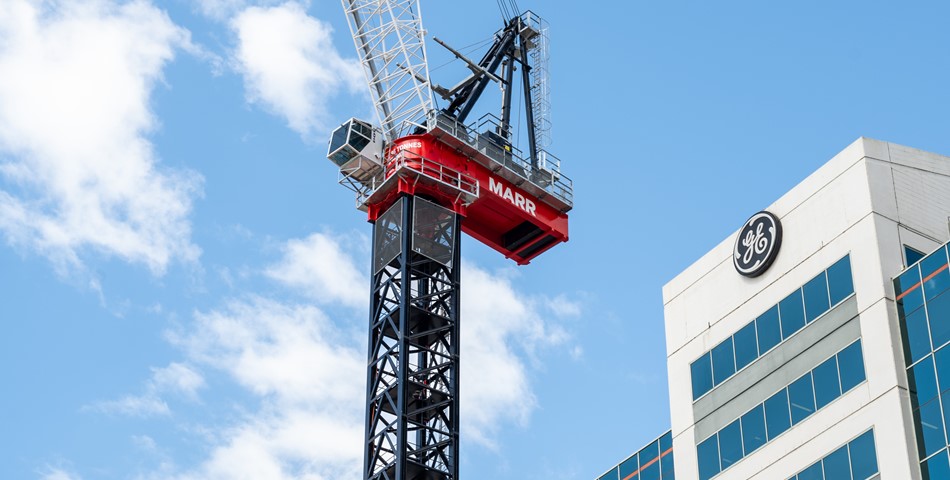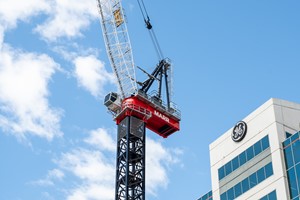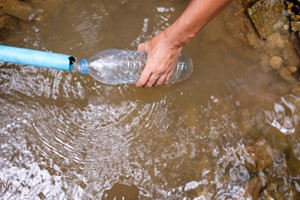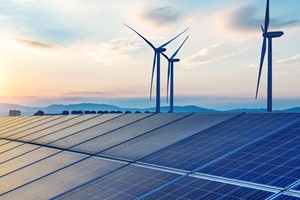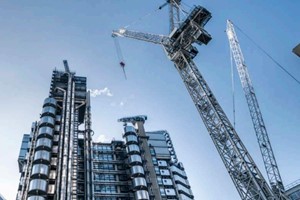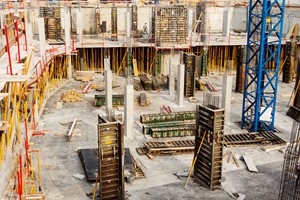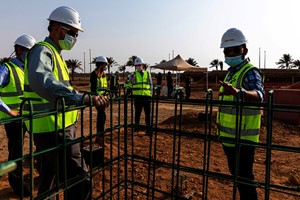The Australian-first sustainability initiative is the result of a partnership between the NSW Government, Marr as the instigators of the HVO100 initiative and cranage provider, Multiplex as the delivery partner of the new Sydney Fish Market, and Lendlease as the design and construction partners of Powerhouse Parramatta.
Recognising the urgency to find an alternative to fossil diesel to power its fleet of heavy lift tower cranes, Marr consulted with clients and leaders within Australia’s construction industry, including senior executives from Multiplex and Lendlease, to understand the issues and constraints with currently available alternatives before scouring the world for the best solution.
After working closely with Neste, the world’s leading producer of renewable diesel, Marr assessed the use of renewable diesel (HVO100) in its cranes and navigated the importing process, with the first shipment arriving in the country in August. The subsequent approval from the Australian Government to allow the supply and sale of HVO100, which has been assisted by Refuelling Solutions as Marr’s nominated distribution partner, was finalised on 21 October 2022, clearing the way for HVO100 to be used as a drop-in fuel in Marr’s cranes, which are currently operating on the new Sydney Fish Market and Powerhouse Parramatta.
The announcement comes just months after the Australian Government passed the first climate change legislation in a decade, with the commitment to cut emissions by at least 43% by 2030 (compared with 2005) and reach net zero by 2050.
Neste MY Renewable Diesel (HVO100) is a high-performing diesel produced from 100% renewable raw materials such as waste and residue fats and oils. Used as a drop-in fuel, it is suitable for existing diesel engines and can help to reduce greenhouse gas emissions by up to 90% over its life cycle compared to fossil fuels.
“For our industry, the decision to replace fossil diesel with HVO100 is about being real about sustainability. In our space there has been a lot of discussion about electrification, but after looking at the alternatives we believe this is the most sustainable power source currently available for the work that we are doing. That’s because it allows us to transition away from fossil diesel and maintain the speed, power and reliability of our cranes to drive productivity and cost-efficiencies on the projects we are working on – while at the same time helping our clients achieve their sustainability goals,” Marr Managing Director, Simon Marr, said.
Mr. Marr said the shift to renewable fuel was the result of meaningful industry collaboration and investment, demonstrating how government support can help the private sector address sustainability issues.
“As cranage providers, we are only at the thin edge of the wedge in terms of what can be achieved to make our industry more productive and more sustainable. However, in acknowledging the emissions reduction targets of many of our Tier 1 clients and end-clients, we’re providing an implementable solution that can help them progress their sustainability goals through a direct reduction in scope one emissions,” Mr. Marr said.
“That’s why the support of clients like Multiplex and Lendlease, who understand what’s involved in transitioning to sustainable alternatives and are committed to finding solutions, will help Australia catch up to other regions, such as Europe and the UK, where the switch to renewable diesel is fast becoming the norm for our industry.”
Multiplex Regional Managing Director, David Ghannoum, said the company was thrilled to support Marr and the NSW Government, with the support of the Australian Government, in bringing HVO100 into the Australian market.




